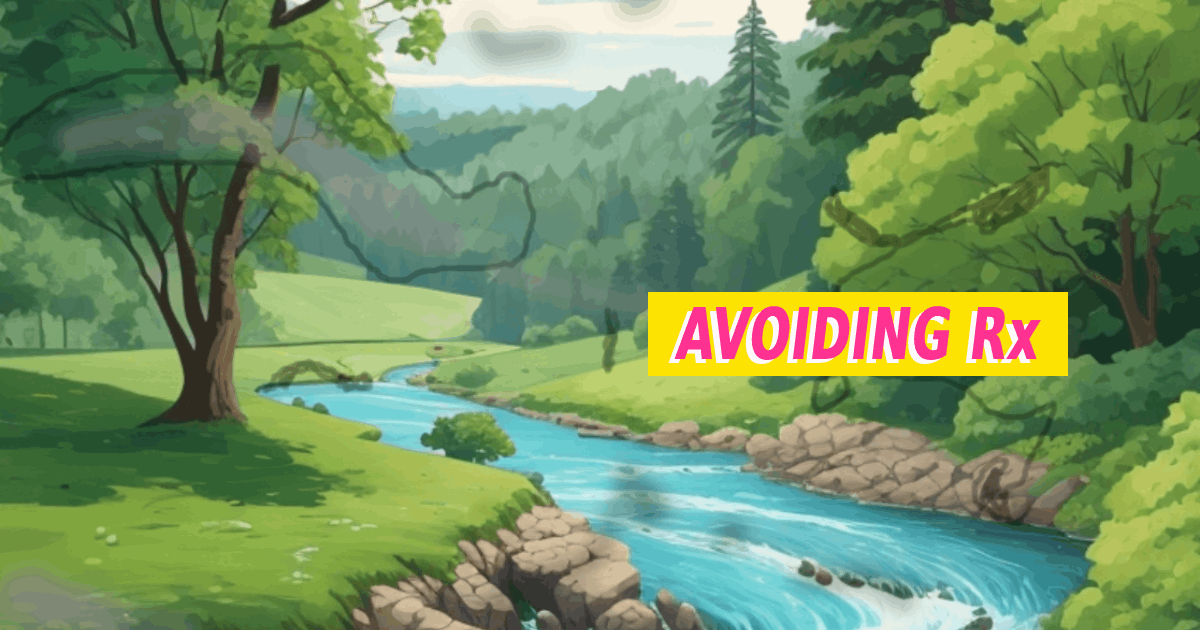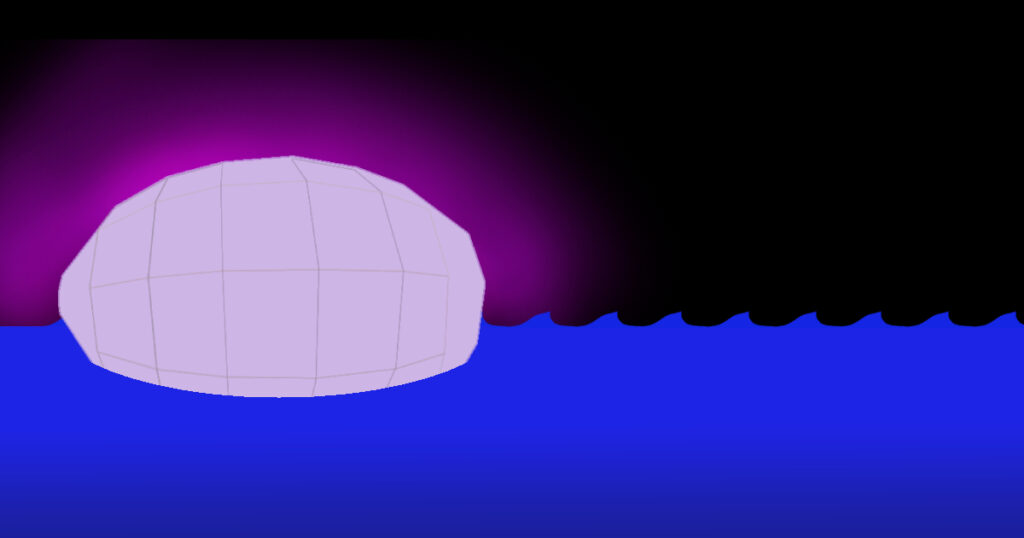
As they tend to do occasionally, in 2016 my cursed eye floaters got worse again, but this time I was able to narrow the cause down to riboflavin (vitamin B2) supplements. I found a discussion of this unfortunate tendency in an online floater forum called Floatertalk, where several members had experienced an increase in floaters after taking a multivitamin.
Read more: Riboflavin supplements and eye floatersIn my earlier post about my experience with eye floaters, I mentioned that hyaluronic acid (HA) deficiency seemed to be a promising theory as to the cause. I had found a CureZone thread discussing one of their members’ success with four months of HA supplements. Vitamin C, which unmistakably makes my eye floaters worse, can degrade HA, so the idea seemed worthwhile. I put off the experiment for the future, however, as I had enough to deal with. Although the floaters can be very annoying, I haven’t gotten horribly panicky about them because they’ve waxed and waned over the years, which led me to believe that in theory it is possible to get rid of them, if only I can figure out how.
Hyaluronic acid promising, but worsened my insomnia
My first experiment was with the formulation mentioned in the CureZone thread, Injuv, which seems to be marketed for the treatment of stiff joints and dry, aging skin. Apparently the Injuv form, which is made by several brands, is more absorbable. I have no idea how much more effective it is than regular hyaluronic acid. I can’t remember what happened when I took it — I think I tried it for a few days, found it worsened my insomnia, and postponed the experiment again.
Since then I have tried at least two other brands of hyaluronic acid several times, including Country Life, I think, following the label dosage. I noticed a difference in the eye floaters and my vision in general in about two days, and after several days my neck and back were noticeably less stiff. And then it stopped me sleeping. Which is what happens with 80% of what I try.
Hyaluronic acid in food
The few food sources of hyaluronic acid I was able to find are items that few Americans eat much of, which might be one reason riboflavin has this side effect. I found a list of hyaluronic acid food sources on Sandy Simmons’ long-defunct and lamented personal website, which also refers to an ABC News report on a group of Japanese villagers whose hyaluronic acid-rich diet keeps them looking fabulous into their 80s and 90s. The list is very short: animal bones, tendons, skin, ligaments; some Japanese starchy vegetables; and miso, which does not have hyaluronic acid itself but genistein, which enhances its production.
You gotta drink a LOT of water with this stuff
One of hyaluronic acid’s jobs is to increase water absorption, so it’s important to get enough water if you take these supplements. I found several accounts of people who attributed their eye floaters to periods of dehydration, and several people who found that hyaluronic acid made their floaters worse. I’m guessing that some imbalance of the two substances was involved.
Another thing that made my eye floaters worse was vitamin A supplements, possibly because it lowered my already-low levels of vitamin E, which plays a role in hydration, or so say all sorts of beauty product ads.
If you too suffer from these accursed things, I’d be interested in hearing what you’ve discovered makes them worse.
Publish and update info
This post was first published on April 28, 2012 and updated in October 2016 and August 2023.





I don’t see how any supplement could in any way be affecting floaters one way or another. The scientific data out there suggests that the fluid in the vitreous sack is inert and inaccessible. There is no blood flow, no circulation of external fluids into this area of the eye –it is cordoned off from everything. So how could our diet possibly be affecting floaters one way or another?
Floaters also don’t wax and wane –our perception of them does and the conditions under which we see them do. That’s it.
Gotta love that scientific data.
Eric, there is indeed blood flow to the eye, at least to the retina. And if someone has a vitreous detachment where the vitreous tears near a blood vessel, then that can bleed into the vitreous, causing the worst types of floaters — dark, black spots and wavy floaters that can in some case destroy your vision — and thus one needs to get to an eye doctor or ER immediately to have them checked out.
Floaters are higher in those with high blood sugar/diabetes, as a result of elevated advanced glycation end products. These AGES damage blood vessels, and there are supplements like carnosine and benfotiamine, among others, that help prevent that damage. So there are supplements that can help, and that’s just a couple of them.
Also, floaters DO wax and wane. I’ve had four vitreous hemorrhages, three of which resolved within about 10 days. The last incident was 2 1/2 months ago. Much less floaters, but still annoying, and they’ve yet to diminish completely. So I’m back on the carnosine, benfotiamine, plus will try some hyaluronic acid as well.
My personal experience – I am nearsighted and had mild floaters all my life. I also get migraines and decided to try riboflavin 25mg a day. After a month, my floaters were larger, more noticeable, and I also would sometimes get flashing lights. Coincidence? Maybe, but I was concerned. So… A search led me here. I also found a 1991 paper that said “In addition to evidence of tearing from light microscopy, biophysical measurements indicated that the retinas from rats fed excess riboflavin had a lower specific gravity owing to a loss of their dense rod outer segments.” The excess was 2-4x their rda equivalent.
But Kelly makes valid points too. I think the bottom line is that the rda is fine – but don’t take megadoses. Probably holds true for all vitamins and minerals
Thanks for sharing your experience. I in fact experiment almost solely with megadoses. Sometimes I run into some weirdness like this, but the vast majority of the time I do not. Good or bad reaction, it’s all valuable info, as long as it doesn’t activate my alien DNA.
try eyebright supplement and tea
So vit C makes floaters worse .. does that go for ester
C too? What about collagen should that help?
I notice that Luten and vit c is in eye supplements
Like ocuvite along with zeaxathin
Tina: I would assume so about the ester C, but don’t recall ever using it. I have not studied the other substances, or any eye supplements targeting floaters specifically. Perhaps there are other causes for floaters besides the interaction of water and hyaluronic acid, and different people will react differently to supplements.
I have floaters and I take supplements to suppress them. I have been trying to get rid of them for about 2 years and like discussing what works and what doesn’t when getting rid if eye floaters.
I’m not sure if you’re still accepting comments, but I’m the person who pointed out the problems with the ‘riboflavin is toxic’ studies a couple years ago, and just stumbled across this page and had to comment again.
Your statement “I narrowed it down to riboflavin (vitamin B2) supplements, which, lo and behold, can also destroy HA”, is not backed up by the in vitro study in your link.
The study is not about riboflavin supplementation, it’s about ‘photosensitized riboflavin’ used in in vitro experiments. They do conclude with the hypothesis that riboflavin ‘may potentially occur in vitro and in vivo in the organs and tissues that are permeable to light, such as the eye or skin’, but again, this is based on an in vitro experiment and not backed up by follow-up studies.
Not sure about floaters, but multiple sources list “blurred vision and itching, watering, sore, or bloodshot eyes, as well eyes becoming light-sensitive and easily fatigued” as eye-related riboflavin deficiency symptoms.
In fact, riboflavin has been shown in a double-blind study help with dry eyes when used as part of an eye drop solution. In other words, riboflavin was put directly on the eye surface, and it improved the condition:
https://www.ncbi.nlm.nih.gov/pubmed/23661528
So, just wanted to make sure that you’re clear on wether or not it was actually riboflavin that caused your problems — or vitamin C for that matter. Floaters are a hassle, but they’re considered normal, that is, until they become very large and interfere with vision. They can become cataracts, which hate to say it, can be helped with riboflavin.
Hi, Kelly. Thanks for clarifying the study’s points. I apologize again for being so pissy the first time. I am going to remove the reference to that study.
B2 was definitely one of the supplements that made the floaters worse back when they were maddening. But then again I now take 100 mg of B2 once ever two weeks or so to help with blurred and tired vision (a different type of blurry than floater-blurry), and that does not seem to make the floaters worse. Of course it’s also a much smaller dose than my earlier supplementation of 50-100 mg a day.
I can’t experiment with any more B2 than that because it screws up my digestion big time, as does HA. (On the bright side, HA no longer causes insomnia.) Otherwise I’d try to figure out at what point the helps-with-blurry-vision dosage becomes worsens-floaters dosage.
My system turns out to be pretty screwed up from years of mold poisoning so who knows what’s going on. It is very frustrating not to be able to use the HA because the floaters are disruptive.
BTW re: the word “floaters” : Some people seem to use it to refer only to those darker chains of cells that have detached from the wall of the eye. I have a few of those, but mostly it is larger, translucent blobs that appear to me to be thickened vitreous gel.
Thanks again for your comment.